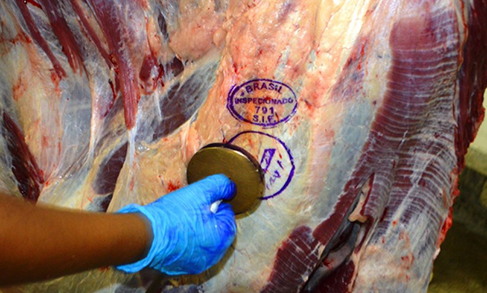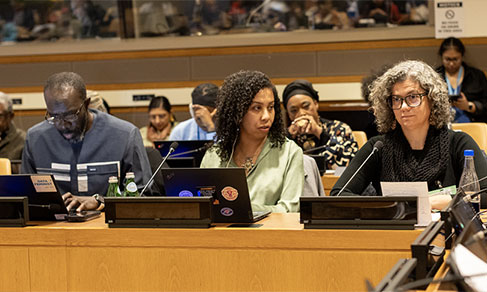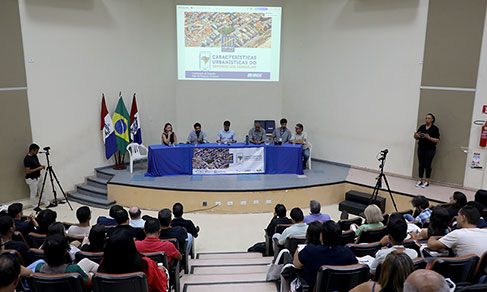PNAD Contínua
IBGE encourages population to answer through telephone survey that portrays Brazil
February 05, 2021 09h00 AM | Last Updated: February 09, 2021 05h28 PM
When Miguel Ferreira Neto, a survey and mapping agent, began to work at the IBGE one year and eight months ago, the scenario of his work was completely different. He used to go to previously selected households to carry out interviews about the labor market. Due to the Covid-19 pandemic, the information about the Continuous National Household Sample Survey - Continuous PNAD began to be collected through telephone since March 2020.
The IBGE´s decision aimed at assuring the security of interviewers and informants. Nevertheless, the challenges of the data collection increased since the work is being made at home. The major challenge has been to get the telephone numbers of the residents of the selected households. To reverse this picture, the IBGE has sent letters, either through Correios or by hand, and telegrams to the informants, asking them to contact the IBGE and provide the updated numbers. During the pandemic, the IBGE needs the help of these informants in order to answer those letters and carry out the interviews.
"The information collection for the Continuous PNAD is a little more complex than it was expected, since we face a lot of difficulty to contact the selected households. Part of the telephones we have in the National Address List for Statistical Purposes has been changed and we still do not have the new numbers," says Ferreira, who works in Porto Velho, Rondônia, one of the 564 IBGE agencies spread in the entire country.
According to him, the face-to-face data collection increased the refusals as well. "When you are outside, you are face to face with the informants and it is simpler to explain and convince them to answer the survey. So, we reversed a lot of refusals. On the other hand, it is easier to discharge you through telephone," states him.
Whenever the informants are approached through telephone by an IBGE interviewer, they can ask his/her ID number, CPF number or registration number and check his/her identity through the Answering the IBGE portal and also through telephone 0800 721 8181.
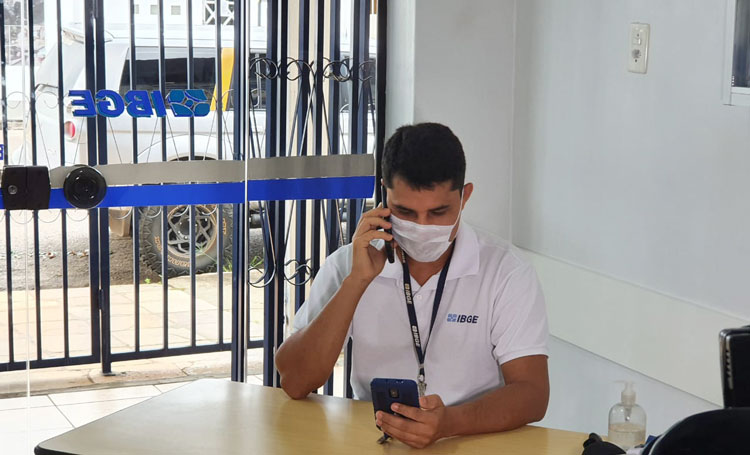
The Continuous PNAD data collection network comprises nearly two thousand interviewers who work in nearly 70 thousand households per month in all the Federation Units. According to Gustavo Geaquinto, state coordinator of the survey in Minas Gerais, the agents were trained to correctly approach the informants when the data collection through telephone was implemented. Once the contact is made, still according to him, the number of refusals is low.
"Due to security reasons, however, some persons remain insecure to pass information through telephone, even because of existing cons. Then the servants are oriented to explain the confidentiality of the information and the ways the informants have to check his/her identity at the IBGE. It is possible to check the identity of the interviewer, if he/she really works at the IBGE and it is not a con," highlights the coordinator.
Geaquinto also highlights that the information provided to the IBGE is exclusively used for statistical purposes, avoiding any possibility to identify the individual informants. It is guaranteed by Law no. 5,534, of 1968, which assures the right of statistical confidentiality of the citizens, as well as the duty of providing statistical information to the IBGE.
According to Geaquinto, PNAD began to have higher percentages of non-responses (unperformed interviews) than it was expected, due to the Covid-19 pandemic. When the survey was made face to face, nearly 90% of the sample was used. When collected through telephone, this index changed to 60%, on average.
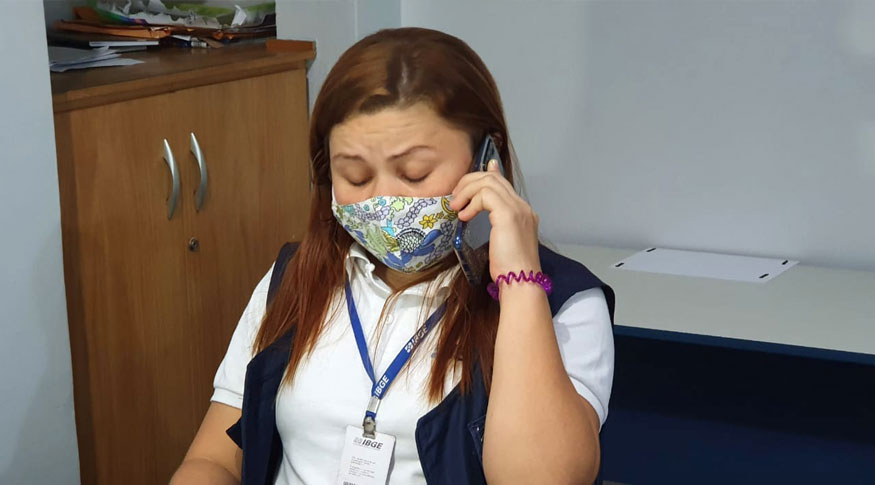
Maria Lucia Vieira, IBGE´s coordinator of Labor and Income, says that the statistical rigor is maintained in spite of the drop in the use of the sample. "The data are still good, significant, but the more interviews, the better. These data are very important to follow up the labor market, especially during the pandemic. The information is necessary in order to make a precise diagnosis of the labor condition in Brazil and to implement the policies to foster jobs," explains her.
Adriana Beringuy, an analyst of the Continuous PNAD, also highlighted the importance of the survey. "We produce an information that is very desired by the society. We have to understand that we will only have this information inasmuch as our interviewers are attended. We can only provide this through the testimony and information provided by each one of the informants. It is a big challenge, but we know that our work is extremely important. It has always been important, both in normal times and in this period in which the economy and labor market in particular have been so affected by the pandemic."
Difficulty to obtain telephone numbers
According to the survey methodology, 20% new households are selected per quarter. When the data collection was face to face, the agents requested the number of informants in the first visit. Now that the first contact is made through telephone, the lack of telephone numbers registered has been the major problem.
"Among the activities made, we try to obtain the telephone numbers through third parties, by way of partnerships, and match them with the IBGE´s numbers, and send letters and telegrams [to request the informants their telephone numbers]," states Gliner Alencar, head of the state unit of Pernambuco.
According to him, the work requires more perseverance today. "The interviewers call several times in different days and hours to contact the informant. Whenever they contact the informant, the acceptance – due to the way our team approach him/her – is relatively high, though it is not always possible for the informant to answer the call," says the researcher.
The effort to obtain the updated telephone numbers has been the daily routine of all the agents who work in the Continuous PNAD. Irineuda de Oliveira, a survey agent in the agency of Limoeiro do Norte, Ceará, tells that she searches for different sources to get the contacts, including the help of former informants. "Depending on the sector, we get in touch with the health agent or we check the location of the household and call former informants who help us to reach the new dwellers," reports her.
To get the confidence and empathy of the informants is also part of this routine, which helps a lot in the development of the work. "After breaking down this first barrier, I immediately inform in which months I will get in touch again. As we call the selected informants five times, we manage to create a bond with some of these persons, who are available to help in this period that we cannot go to the field," tells Oliveira.onta Irineuda.
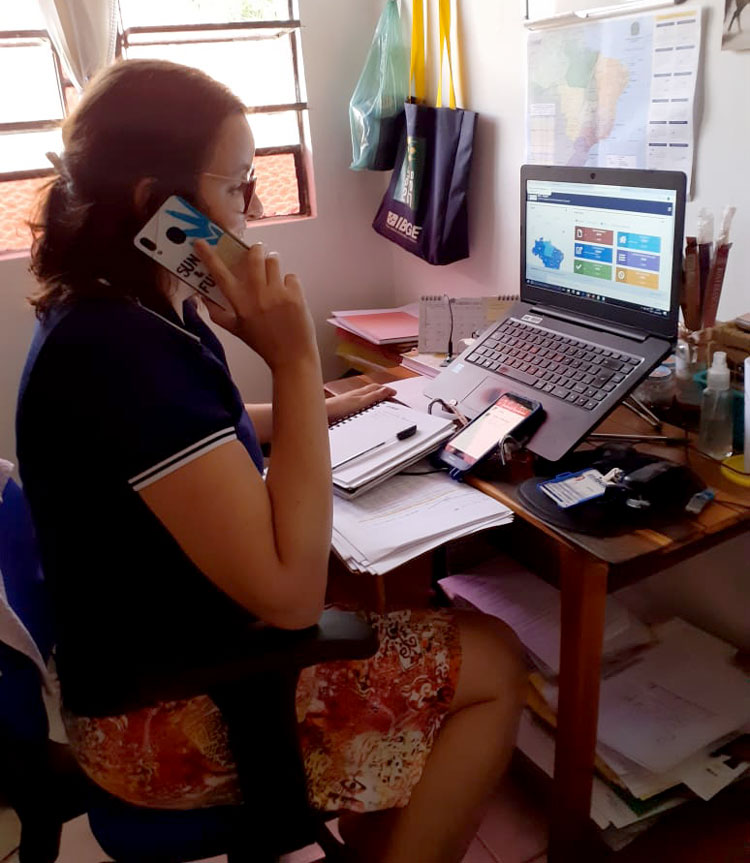
For Cimar Azeredo, IBGE´s director of Surveys, the effort of the agents has been critical when the IBGE had to adapt to a new work routine. "Without them, we could not talk about formal contracts, increase of the employed population, unemployment rates. We would completely lose our way. How a public manager could develop public policies without the Continuous PNAD? It is impossible to do it," states him.
He highlights that the period in which the social distancing measures were adopted was also a time for the researchers to learn. "Despite every bad thing that this pandemic is bringing, we are learning a lot from it in professional terms. We need to maintain the Continuous PNAD and, to do it, we need the help of the informants," completes him.
Change in the data collection strategy
The head of the state unit of São Paulo, Francisco Garrido, tells that a lot of effort of the agencies network was needed to change the data collection strategy. "This effort continues today, though more oriented and more structured, to maintain a performance that ensures the continuity of the survey, with quality and respecting deadlines, against every daily challenge of such virtual relationship, surpassing many obstacles and using alternatives, aiming at meeting the institutional mission and at maintaining a positive relationship with the informants," states him.
Garrido highlights the importance of the agents to carry out the IBGE surveys. "Many times people do not associate those IBGE stories, released nearly everyday in many big, medium and small press vehicles and social media, in every municipality of Brazil, with those valuable interviewers who are calling the informants everyday to obtain the statistical information. Without capturing these data, the IBGE could not maintain its surveys and fulfill its institutional mission," states him.
Working at home also brings other challenges to researchers. Besides the contact with residents, the remote work requires the continuous balance between the work hours and the daily dynamics at home. Raimundo Neto, a survey agent of the Itapipoca agency, in Ceará, tells that his routine begins early in the morning with the household chores, followed by the activities related to the survey.
"I begin to work establishing the telephone numbers that I will call, according to my follow-up spreadsheet, and then I begin to make the calls. As I do not have a specific place to work at home, sometimes I am interrupted by my daughters, yet not disturbing the interviews," says him.
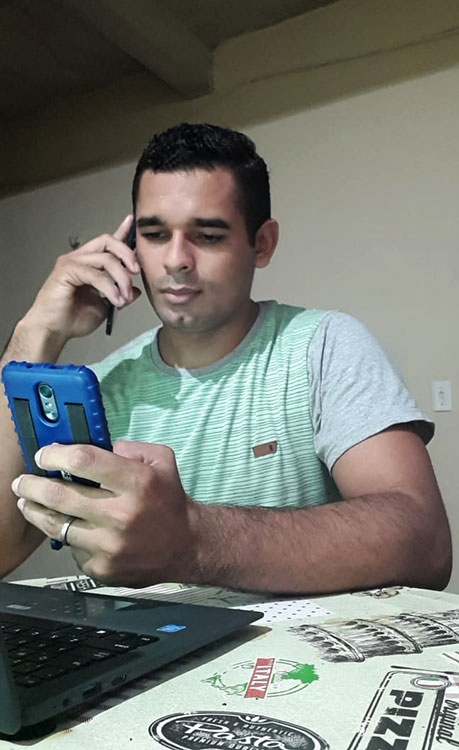
Agent Miguel Ferreira Neto reminds that the informants should be valued, regardless of the difficulties faced in the daily work. "We have to thank the informants who attend us well. We have already the case of a person who changed his telephone number and informed us immediately. Such persons allow us to make a precise picture of what is happening with the population in the region," says him.
For Francisco Garrido, we should raise awareness in the population that the success of the release of the IBGE data critically depends that the persons attend the IBGE´s servants on the phone. Without this attendance, household surveys like the Continuous PNAD would not be possible.
"We understand that the Continuous PNAD is the largest household survey carried out in Brazil, based on a very robust sample, able to present reliable information on the workforce and other relevant information to follow up the socioeconomic scenario in the short, medium and long terms, including the investigation of supplementary themes," says Garrido.
The Continuous PNAD is a household survey that produces information for the socioeconomic development of Brazil by carrying out a continuous investigation of the short-term indicators of labor and income. It is considered the major instrument to follow up the workforce in Brazil. Its periodicity is quarterly and each household selected in the sample is interviewed once at each quarter, during five consecutive quarters. To get more information about the Continuous PNAD, please access the content of the last release.





